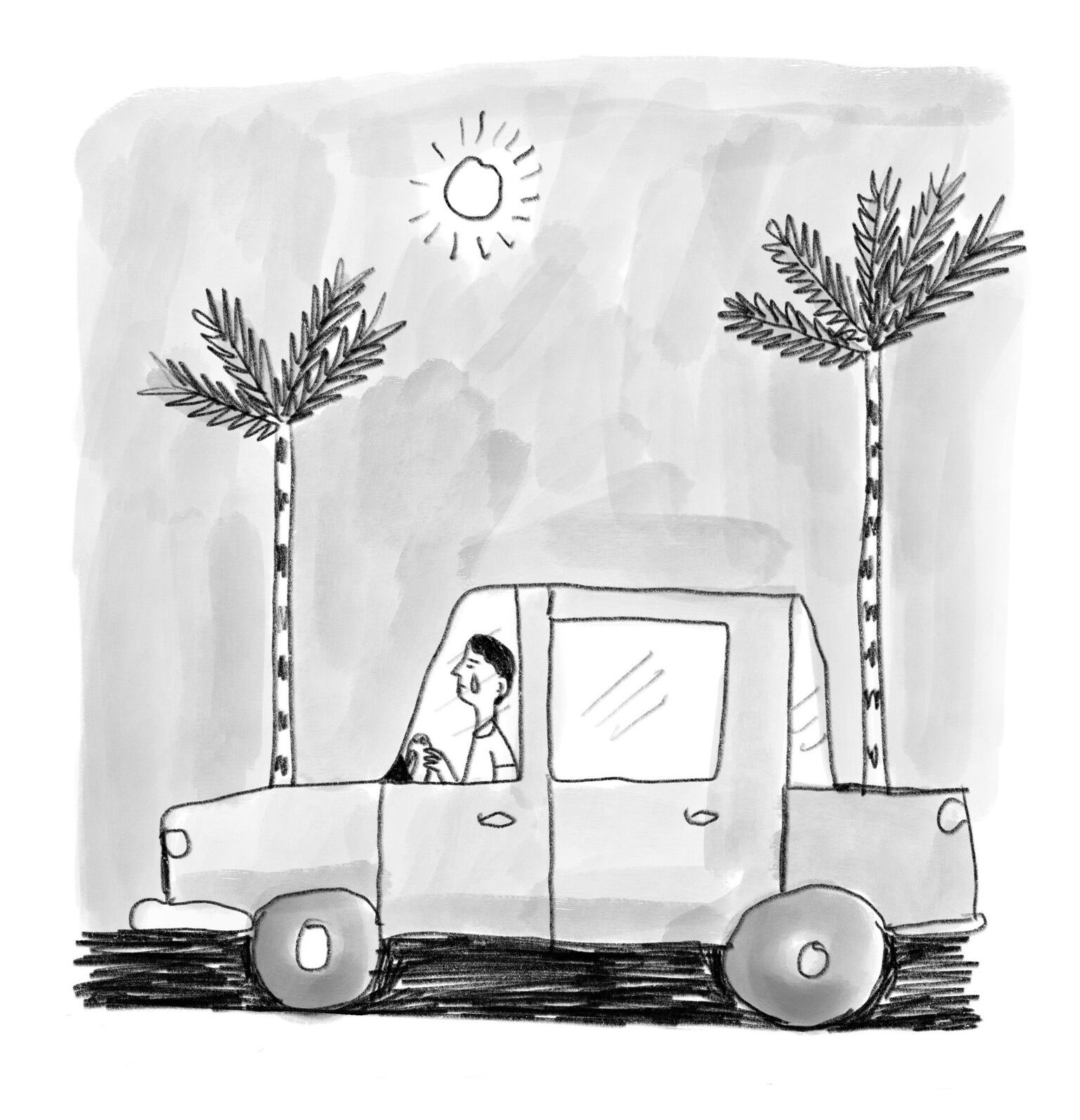The day after Trump was elected, it was sunny in Los Angeles, with a high in the mid-90s, typical for November in Southern California, besides some unusual precipitation causing small, highly concentrated floods throughout the day. Mostly of the eyelids and cheeks. In slow traffic on Sunset Boulevard, a driver heard Obama respectfully surrender on the radio, and a strangled sobbing came forth. In the waiting room at the dentist, a patient welled up. Seeing the tooth business continue totally unfettered by this tragedy was sickening.
I started crying at the sight of the blank page when I opened my computer to write. That brought the storm out of me. Hard, liquid sobbing, for a long while. And loud, so the dog came into the room and curled up at the foot of the bed, shooting me a worried look now and then.
I think I cried at the blank page because the grief is so fresh and tangled up, it’s inexpressible. Fear, guilt, powerlessness, anger, confusion. I turn to my friends, my media, and my leaders, and I’m told this must be a wake-up call, a catalyst for serious action. I reblog. I agree. I cry, because concretely I don’t know what they mean. I’m still just sitting around on a Saturday. The sun is out and the birds are in the trees, doing bird stuff. I don’t want to call them stupid, or racist, but I’m pretty sure now is not the time for that kind of dillydallying.

For expert guidance, I called up Christine Garcia, a brilliant woman who wore a sharp gray pantsuit on Election Day and is a clinical psychologist at UCSF’s Department of Psychiatry. Below, I paraphrase and illustrate some of the things she told me: what conscious action could look like, and how to hold anger and summon empathy at the same time.

**Build your tribe.**
We all have blind spots in different ways, because of our life experiences. There are moments when we’re in positions of power, and moments when we’re in less power and feel oppressed. It’s everyone’s responsibility to know their blind spots. This process begins by building a community where you can feel safe, and also challenged. This could be a group of women, a group of writers, or a group of people of all different backgrounds and ages. It’s perfectly fine to have a tribe of your close friends, but especially now, it’s important to open up to allies who have different opinions and backgrounds. And your tribe doesn’t have to be one group. It can be many groups.

**Be an ally.**
If you become aware of yourself as being part of an oppressive identity group, listen before you talk. Be conscious and aware of your position of power. Be conscious of how you may steer away from these conversations because they make you feel guilty and ashamed. With honesty, bring to light your blind spots and biases. Check your privilege.

**Speak up.**
When we imagine the changes that need to happen, we may envision new laws getting passed and sweeping national movements, but the painful reality is that this is going to be so, so slow. And it starts with our daily interactions and the way we absorb and respond to intolerance in its many forms.


**Remain curious about your opponent.**
The aforementioned avenues of action and education make sense to me. A whole new regime of reading, gathering, and awakening is called for. I can sign petitions, I can attend protests, I can call out a male colleague for speaking over a female coworker. But what about Thanksgiving, when I see my uncles who voted for Trump? If I can bear to speak with them, should I? What good would it do?

Christine makes a good point: when you go into a situation trying to change someone’s position, it shuts down curiosity. While staying true to your position, try to ask questions and listen with an open mind. Know your limits. If you are feeling unsafe or triggered, you do not have to stay or keep the conversation going.

This work is a marathon, not a sprint. Of course, they may not budge an inch, but there will be some, a few, who may have even the slightest shift. Like stomach muscles slowly emerging through a summer of even the most sporadic Pilates, the progress is extremely subtle, but real. (This last sentence is mine, not Christine’s, but I think she would agree it’s an apt metaphor.)
Trump, in the final days before the election, proclaimed that if he lost, the whole thing would have been a “tremendous waste of time, energy, and money.” No patience, that man. We can outwait him.
Use your time to educate yourself and your tribe. Use your energy to speak when it’s not easy. Give money to the causes that are important to you. I’m already thinking of a name for my tribe.

We scream at the top of every meeting, then get down to business*.
(*Let me know if you want to join. I need someone to be my uncle in a role-play.)
(1) _is a writer and illustrator based in Los Angeles. Her first book,_ Brave New Work, _will be published by the Museum of Modern Art in 2017._
1) (http://link.lennyletter.com/click/8119722.0/aHR0cDovL2hhbGxpZWJhdGVtYW4uY29tLz9zcmM9bmwmbWFnPUxFTiZsaXN0PW5sX0xFTl9uZXdzJmRhdGU9MTAwMTE2/5672eded1aa312a87f2d6890B00874f46)



